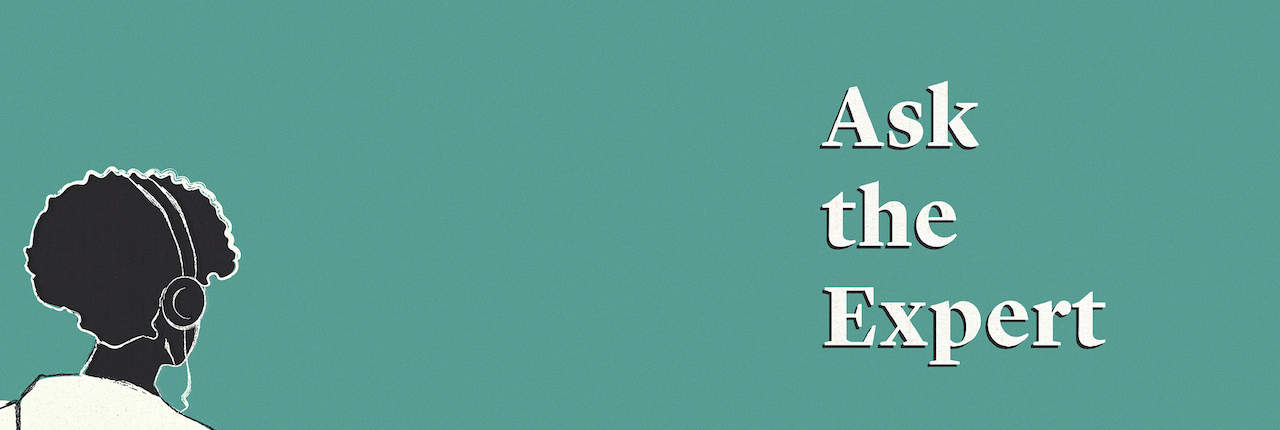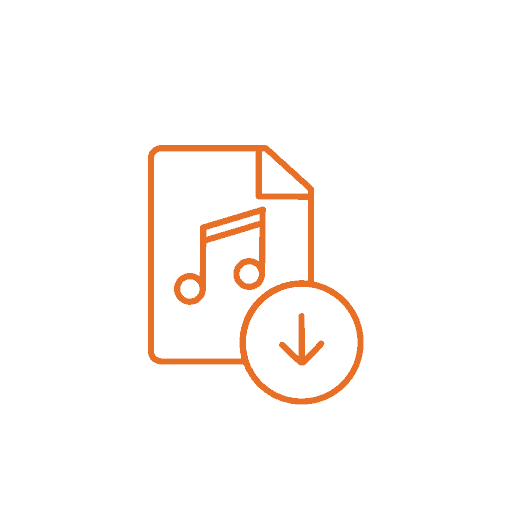COVID-19 Vaccines with Dr. Greenberg | Part VII
August 22, 2022
In Part 7 of our Q&A series, Dr. Benjamin M. Greenberg, member of SRNA’s Board of Directors and SRNA’s Medical and Scientific Council, discussed COVID-19 vaccinations and the implications for those with rare neuroimmune disorders.
Glossary:
EVUSHELD – an investigational medicine used in adults and adolescents (12 years of age and older who weigh at least 88 pounds [40 kg]) for pre-exposure prophylaxis for prevention of COVID-19 in persons who are immunocompromised; and/or unable to receive a COVID-19 vaccine; and/or did not mount an antibody response to the COVID-19 vaccine.
Rituximab – sold under the brand name Rituxan among others, it is a monoclonal antibody medication used to treat certain autoimmune diseases, including NMOSD, and types of cancer.
Steroids, IVIG, and plasma exchange – acute treatments for an inflammatory attack of a rare neuroimmune disorder.
PAXLOVID – an oral antiviral pill that can be taken at home to help keep high-risk patients from getting severely sick following COVID-19 infection.
Remdesivir – an antiviral injection used to treat COVID-19 infection in hospitalized adults and children and in non-hospitalized adults and children who are at high risk of progression to severe COVID-19, including hospitalization and death.
Molnupiravir – an oral antiviral medication that inhibits the replication of certain RNA viruses. It is used to treat COVID-19 in those infected by SARS-CoV-2. Recommended to be used only if PAXLOVID and Remdesivir are unavailable.
Novavax vaccine – a protein subunit vaccine that contains pieces (proteins) of the virus that causes COVID-19. The virus pieces are the spike protein. The Novavax COVID-19 vaccine contains another ingredient called an adjuvant. It helps the immune system respond to that spike protein. After learning how to respond to the spike protein, the immune system will be able to respond quickly to the actual virus spike protein and protect you against COVID-19. (source: CDC – https://srna.ngo/2xj).
Transcript
[00:00:08] Dr. GG deFiebre: Thank you for joining me today to talk about COVID again. It’s been a while since we’ve done an update video. And some things have changed, some things have stayed the same but there are some important updates and changes that are important for our community. So, to start, do you mind talking about what Evusheld is and who should get it?
[00:00:28] Dr. Benjamin Greenberg: Yeah. So Evusheld is an injection of actually two different antibodies. And it’s important to note first that this is not yet FDA-approved, it is still under an emergency use authorization by the FDA and EUA for individuals who are 12 years of age and older, where there has been either an inability to respond to a vaccine or an at-risk person who’s not able to receive the vaccine for some reason, so they’re not gonna mount the response. And what this is a single time point of two injections, so you get one in your left arm, one in your right arm, one of the antibodies goes on your left, one on the right and it provides you the antibodies or some, I should say the antibodies that the vaccine should trigger in people, so if you’re not able to mount that response, we give you the antibodies to protect you.
[00:01:25] Now, these protective antibodies probably need to be redosed six months later, so you’re not done after a single dose. But if you’re on a medication that leads to immunosuppression, you are a candidate for receiving the Evusheld treatment. And so, in my clinic the most common patient who is getting Evusheld are some of our neuromyelitis optica patients who are on rituximab or Mycophenolate, one of the immunosuppressant agents. If you have had a monophasic autoimmune disease, so idiopathic myelitis or acute flaccid myelitis and you’ve been able to get the vaccine, there is not an indication to pursue Evusheld therapy.
[00:02:13] Dr. GG deFiebre: Got it. And is it just for adults or children as well?
[00:02:17] Dr. Benjamin Greenberg: So, you have to be not only 12 and older, so it goes down to 12, so teenagers. It’s not approved for under the age of 12, but you also have to weigh at least 40 kg, which is just under 90 lb. So, if you’re 12 years of age and only 75 lb., you need to wait until you’re a little bigger. But, if you hit both of those 12 years of age and 40 kg or more, you are a candidate, if you fit into one of the high-risk categories.
[00:02:45] Dr. GG deFiebre: Okay. And then if someone is a candidate for Evusheld, should they still get the COVID vaccines?
[00:02:52] Dr. Benjamin Greenberg: Yes. And it’s important to understand that Evusheld is two antibodies. A COVID vaccine has the potential to elicit a whole host of antibodies, very different versions of them and so when the vaccine works, it’s probably just as good or better than Evusheld in terms of preventing infection or preventing significant complications if you were to get infected and so we still recommend getting the vaccine. Unfortunately, for a lot of our patients on immunosuppression despite rolling up their sleeves and getting vaccinated, they’re not mounting as big of a response as they need, in order to get protection and that’s where the Evusheld comes in.
[00:03:31] Dr. GG deFiebre: Okay. And then is there… Are there any considerations regarding timing for getting Evusheld if you are on… If you’re receiving infusions or other treatments for immunosuppression?
[00:03:44] Dr. Benjamin Greenberg: Yeah, it’s a question, a very practical question we get all the time and unfortunately, in the trials that data was not sorted out. So, for example, in our clinic the most common one that comes up is rituximab and the question is, can I take this around the time I get rituximab? And the answer is, you probably can, actually you don’t need a month in between to do it, but we try to keep them separated a little bit really for safety reasons around side effects, you don’t wanna do all of it in one day for example. So, you can probably get the Evusheld even one to two weeks before or after rituximab and it will probably work just fine.
[00:04:27] Dr. GG deFiebre: And then similarly, what about with the vaccines, have we learned anymore about kind of best practices regarding timing with infusions or treatments?
[00:04:37] Dr. Benjamin Greenberg: So, in general, where we’ve gotten to is an issue between ideal and what’s necessary. So, the ideal is probably to have a couple of months in between an infusible treatment and a vaccine. But, unfortunately, it’s very difficult to time things and we are not wanting to delay infusions for the vaccine and we’re not wanting to delay vaccination for the infusions. So, what I’ve been telling my patients is, get your vaccine as soon as you can, get your booster, keep it a couple of weeks away from again, a rituximab infusion which is the most common drug that we have this conversation about. But we wouldn’t wanna say, well just wait for six months to get your dose. We tend to just do it as soon as we can.
[00:05:30] Dr. GG deFiebre: And then what is being recommended for the vaccines or even Evusheld if someone is acutely diagnosed, so they’re recently diagnosed or have a relapse and they’re being treated with either steroids, IVIG or plasma exchange. Are there any particular considerations with that?
[00:05:47] Dr. Benjamin Greenberg: Yeah. So, in the acute setting we would delay both vaccination and Evusheld particularly if somebody is on plasmapheresis, the plasmapheresis should end before Evusheld is given, because otherwise you’re just gonna suck out the antibodies that you just gave. Likewise, IVIG may cause a shortened half-life of how long the Evusheld antibodies are in your system, so in general we would wait at least a few weeks after the IVIG, before giving the Evusheld. Relative to steroids, Evusheld can be given at the same time as steroids, because we’re not looking to trigger an immune response, we’re giving you the actual antibodies. And so, the efficacy of the Evusheld won’t change at all if you’re on steroids or not, so that’s perfectly safe and reasonable to do. For vaccines, we tend to wait until you’re off steroids to give the vaccine so that you get the biggest bang for your buck, you get a good response to the vaccine that steroids in theory might limit. If it does, if the steroids limit the vaccine, it probably isn’t massive limitation but it’s only partial.
[00:06:51] Dr. GG deFiebre: Okay. And then do we know any more about case reports or any sort of information about new diagnoses of TM, MOGAD, NMO, or any of these conditions after vaccination or after infection?
[00:07:09] Dr. Benjamin Greenberg: Yes. So, as people will see reported in news media, literature, and social media which I’m told about, but I’m not on social media, so I have to wait for others to tell me about it. We hear about different cases both after infection and after vaccination. My count so far has the number of neurologic complications after infection far higher at a much greater rate than any of the suspected events after vaccination. And one of the things that’s important for everyone to recognize is, we are still sorting out what these neurologic events are. I’m gonna give an example and we’re working on a paper now and so stay tuned. But we have seen a series of patients who were referred to us as having transverse myelitis in the days or weeks after a COVID infection or a vaccination. And for all of our looking we cannot find any signs that was immune mediated and what we’re calling myelitis that inflammatory event of the spinal cord, in these patients may actually be something different.
[00:08:15] And so it can look like myelitis on the MRI. The symptoms can be the same, but when we really dig deep, we’re starting to generate a theory that there’s actually a very different event happening within the human body other than an autoimmune event. So, stay tuned, we’re gonna be working on this as much as we can. Thankfully, whether it’s myelitis or something else, the rates of significant acute events of the nervous system are very low. What is going to receive a lot of attention over time are these… What’s being called post-COVID syndromes which are much more prominent and can be quite debilitating, but we’re not finding evidence of focal immune mediated events yet. But, while we thankfully don’t see that many cases of myelitis for example, we are seeing a lot of patients who struggle for weeks or months after an infection and that has not been described with the vaccines.
[00:09:15] Dr. GG deFiebre: Right. And then, are there any new COVID-19 treatments that are available for our community to consider if they do have a diagnosis of COVID-19.
[00:09:27] Dr. Benjamin Greenberg: So, things have been evolving relative to treatments if you are infected and there is now one FDA-approved therapy. This is called Paxlovid. It’s actually a combination of two antiviral medications in one pill. We still have a medication called remdesivir, which is available for use, and then two other antivirals. The one that’s gained the most attention is the molnupiravir and when we look at the data and the CDC guidelines around this, Paxlovid and remdesivir received the highest recommendations. The others are being used only when needed if you don’t have access to Paxlovid or remdesivir.
[00:10:15] Now these medications are meant to reduce hospitalization, so the idea is if you develop COVID and you’re not in the hospital, you can take one of these medications. Paxlovid is easy, it’s an oral medication, you don’t need an infusion to help prevent hospitalization and the data is quite good that it works. What a lot of people may be aware of however, is this phenomenon of rebound that can happen. So, you’re at a wedding, you come home, you hear a couple of people tested positive for COVID, a day later, you’re feeling a little stuffy, you get tested and you’re in the earliest stages of COVID infection. You’re a candidate if you have risks for having severe disease for going and getting Paxlovid. It’s a five-day course of a medication. What’s interesting is there’s a number of patients who after they completed a couple of days later, have a little rebound of infection, either clinically or in testing, but they don’t seem to be developing full-blown or severe COVID. So, these rebounds are being looked at but in general, the data suggests that it’s still very safe to do and it’s a great way to help prevent hospitalization.
[00:11:37] So, for my patients who are immunosuppressed in particular or have other diagnoses that place them at high risk of a complication, we are using Paxlovid when we hear about people being infected. Which is one of the reasons and I have to take this moment to get a little bit of a soapbox, I’m seeing people testing less, I’m having lots of people say, “Oh, I have a little cold,” and I ask is it COVID? And they say I haven’t tested. We want people testing both so we know what options are available for treatment, but also so we can stop trying to keep spreading it. We’re seeing our numbers increase here in Texas and in Dallas and it’s because we’re all very tired of this and complacent with it. But prevention still works, masks still work, we can still avoid the spread and make it so that our kids can be in school, and we can be in work and all that, but if infection occurs, we wanna know it, so we can discuss things like the Paxlovid.
[00:12:38] Dr. GG deFiebre: Right. And especially as you mentioned, these treatments work when it’s kind of early on in this process, so, yeah. And then, are there any kind of particular considerations within our patient community for these medications or is it sort of the same as the general public in terms of the potential risk factors?
[00:12:59] Dr. Benjamin Greenberg: Yeah, we haven’t seen any unique issues with individuals with either nervous system disease or autoimmune diseases. And so, the guidelines for who should use them and the safety profiles of the medicine are the same in our community and outside.
[00:13:15] Dr. GG deFiebre: Got it. And then we do have a new vaccine out and about Novavax. Do you mind just talking a little bit about that and how that might differ from the vaccines we have been using so far?
[00:13:29] Dr. Benjamin Greenberg: Yeah. So Novavax is different than the Pfizer and Moderna vaccines that we’ve all gotten very used to and as a refresher and people can go back to podcasts from a couple of years ago now. But the Moderna and the Pfizer vaccines make use of a technology called mRNA technology where your body produces just one of the viral proteins in a very specific way to get the immune system to recognize it and then develop an immune response to it to keep you safe. Novavax is not an mRNA vaccine, it is what’s called a protein subunit vaccine, this is much more of what I would call a traditional approach to vaccination. They took part of the SARS-CoV-2 spike protein off the virus and basically you put in a blender, you add certain lipid salts and sugars to it, you give it to a person as an injection into the arm and you then illicit a vaccine response.
[00:14:40] So, there’s a lot of misinformation out there when it comes to all vaccines, but this one, there are no preservatives in this vaccine, there’s no mercury-based preservatives of any kind, there’s no antibiotics, there’s no other medicine or therapeutic in it, there’s no tissue or food proteins. I’ve heard all sorts of things, we were worried about metal at one point, I got told there was nickel or cobalt in the vaccine, there’s none and so, it’s got a very good safety record. It’s given as two doses and you take it anywhere from 3 to 8 weeks apart. A couple of things about Novavax to be aware of. So, like any vaccine you can have side effects, fever, chills, muscle aches afterwards, anyone can have allergic reactions, severe allergic reactions and like the mRNA vaccines, we’re watching for cases of myocarditis which is inflammation around the heart, those have been exceedingly rare, and the vaccine works. It helps prevent severe illness, helps prevent death and protects us against infection.
[00:15:51] Novavax has not been approved or has not been made available for boosters. So, while we are doing mRNA vaccines for boosters, we do not have that data and do not have authorization for Novavax for boosters and it is available for individuals who are 18 and older, so we don’t yet have pediatric availability. So, in general, I still think most of our patients are gonna be getting access to either Pfizer or Moderna and there’s going to be fewer who are making use of Novavax. But, if you’re 18 and older and it’s all that’s available to you, it’s safe to take.
[00:16:40] Dr. GG deFiebre: Got it. And I think we… Since the last time we spoke, younger children are now eligible for receiving the mRNA vaccines, Pfizer and Moderna, is that correct?
[00:16:52] Dr. Benjamin Greenberg: Yes. So, for the Pfizer vaccine, you can do 12 years and older in terms of approvals and even under the emergency use can go you still go younger than that for the mRNA vaccines.
[00:17:12] Dr. GG deFiebre: And then there’s been some discussion about boosters potentially in the fall that include Omicron as part of the vaccine. Do you mind just talking a little bit about that, what we might know at this point?
[00:17:25] Dr. Benjamin Greenberg: Yeah. This is the really cool part about mRNA vaccines. So, let’s go back and put in the context what just happened to us globally. SARS-CoV-2 comes out, infects millions and millions of people, spreads like wildfire, we have the pandemic and over time mutations start to occur. The more infections that we allow to happen, the more mutations will occur and so in general when you make a vaccine and with older technologies you were targeting a fixed protein on the virus and what happened is, the protein we’re targeting, the spike protein is mutating, and we got Delta and then Omicron and the next version of Omicron and the 3rd and 4th version of Omicron.
[00:18:14] With mRNA, you can go back and say, well instead of making the original spike protein for our immune system to respond to, let’s make the Omicron version of the spike protein and it allows for us to more rapidly develop and then test the vaccine, in order to show that we can get out ahead or I should actually say be a little behind, but at least have a response, a rapid response to mutations like Omicron.
[00:18:41] And so the work has been done on updating the mRNA vaccines to have Omicron specific sequences and we are waiting for the data and the availability where if you’ve gotten the Pfizer or the Moderna, what you may find is subsequent boosters may be different based on what’s happening. And the precedent for this is really flu vaccine, we never take the same flu vaccine twice. So, I’ve had flu vaccines every year of my life since I was a child, I’ve never had the same flu vaccine, they’re all… They change to some degree based on which virus we think is gonna circulate in a given season. Here, what we’re gonna do is just update the COVID vaccine to be in line with what’s circulating, so that we can try and again, prevent as much circulation and hence prevent mutations. The more that circulates, the more shots on goal the virus has to mutate in a way that could cause a significant harm.
[00:19:41] Dr. GG deFiebre: Got it. And then are there any particular considerations for children or families with children with a rare neuroimmune disorder, especially considering school is about to start soon?
[00:19:53] Dr. Benjamin Greenberg: Yeah, we’re having this conversation in our children’s clinic, and I separate out our kiddos into two categories, those who are on active immunosuppression and those who aren’t, those who may have had a single central nervous system event myelitis, ADEM, acute flaccid myelitis but they have no evidence of an ongoing condition that needs immunosuppression like neuromyelitis optica. For those kids, It’s the same precautions that the general population takes, they are not at any unique risk of catching or having a complication from SARS-CoV-2 virus. For our kiddos who are on immunosuppression, this is where things like Evusheld becomes in if they’re old enough 12 and older in order to get it and then if they’re not, we are still recommending that families and kids consider masking in school. We think it makes a big difference, it works, and it really helps prevent them from getting infected.
[00:20:56] Dr. GG deFiebre: Got it. And then any kind of final thoughts or anything we didn’t cover that you think we should cover?
[00:21:03] Dr. Benjamin Greenberg: Yeah, one thing that come up a little bit, that was in the news just in the last month was us having our first case of polio in the United States, did you hear about this? I’m sure it’s been all over. So, and it’s important to understand the importance of what happened. So, since 1979, we have not had a case of what’s called wild poliovirus originating in the United States. So, 1979, most people listening to this probably weren’t born by 1979 or at least a lot of folks weren’t born by 1979. And so, we had poliovirus come in where people had been traveling to other countries, got it and came home with it. But the last time that happened was 1993, so we haven’t had wild poliovirus since 1993 and basically almost 30 years, what was left was this issue of polio coming via the oral polio vaccine.
[00:22:10] So, there are two vaccines for polio that are highly effective, the inactivated polio vaccine, which is an injection and oral polio vaccine, which is a modified attenuated virus that is oral, the kids drink it, the virus goes to the gut, triggers the immune system so that if the kiddo ever sees real polio, they’re ready to fight it off and the vaccine is exceptionally effective. The issue is there are some people when they drink it where it can replicate in their GI tract, come out with their stool and if somebody hasn’t been vaccinated interacts through either a poor hygiene situation or some other situation with contaminated water, contaminated food, then it’s possible for them to get polio because the virus could mutate, get back to being virulent and then if you haven’t been vaccinated, you can get polio. So, that’s what we just had in the United States, the first case in a couple of decades because we don’t use the oral polio vaccine anymore. And so, we haven’t seen this and thankfully our vaccine rates for polio tend to be high, but as there have been amazingly well coordinated misinformation campaigns about vaccine safety that has scared everybody, the vaccine rates have been going down and in fact, there are some counties in the United States where half or less of people are vaccinated and that’s where we see outbreaks and indeed what we just saw was a case of polio in… And to my understanding and I just have the news reports in an unvaccinated individual who must have come into contact with someone who got the oral polio vaccine and then contracted polio.
[00:24:07] So, why is this important? It’s important for a couple different reasons. One is for any health care providers who are out there seeing acute flaccid myelitis patients, we still need to screen for polio, we still need to send the test in, we still need to make sure… We need to take a vaccine history from our patients, we need to know have they been vaccinated or not and if they’ve been vaccinated for polio, it’s essentially basically impossible for their acute flaccid myelitis to be polio. we’ve never had a case in a vaccinated individual of acute flaccid myelitis in the United States. But, for our families listening, it’s an important reminder that while we focus on what the immune system does to our central nervous system, there are vaccine preventable neurologic complications and polio is just one of the many. So, whether it’s a COVID infection related complication, a measles associated neurologic complication, a flu related neurologic complication, vaccines can prevent these and their safety profile mathematically suggests the benefits far outweigh any risks that are associated with them. So, it’s just a reminder we need to stay up to date on their vaccinations.
[00:25:19] Dr. GG deFiebre: Great, yeah. Good point as well. So, thank you so much for giving us that update and then also obviously including other kind of public health issues that are occurring at the moment. So, I appreciate your time.
[00:25:31] Dr. Benjamin Greenberg: I appreciate it, thanks GG.
[00:25:33] Dr. GG deFiebre: Thank you.
LISTEN & SUBSCRIBE
TO PODCAST
DOWNLOAD MP3
DOWNLOAD TRANSCRIPT











